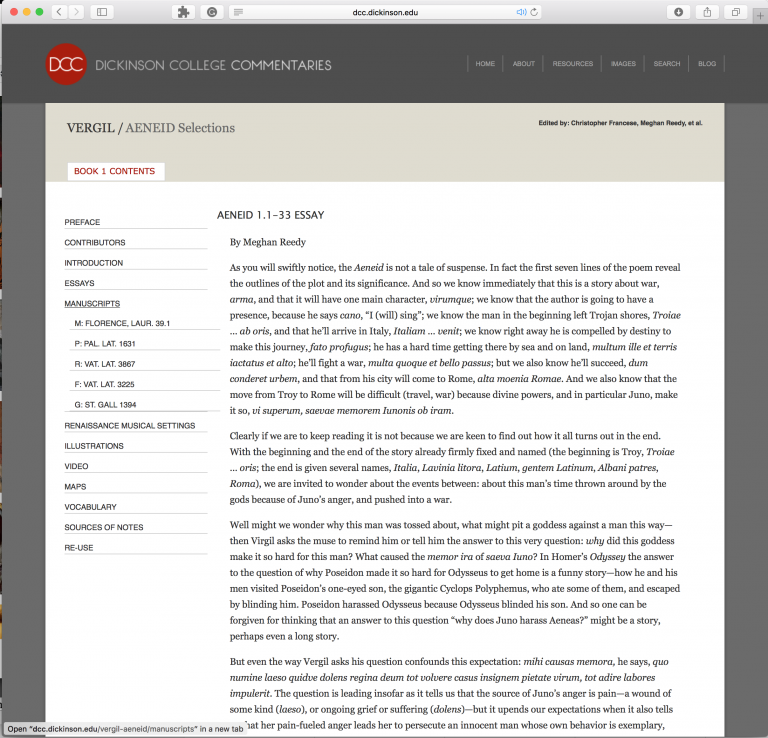


Links for Augustan Age Authors(Erlangen).Tools of the Trade for the Study of Roman Literature.Some Dictionaries of Literary Theory and Related Areas.From “Mantovano” (also lists basic Vergil paperback books).Virgil in Late Antiquity, the Middle Ages, and Renaissance: An Online Bibliography.An Online, Ongoing Discussion of Virgil and His Influence (you can subscribe).“Vergilius” includes a bibliography of new work on V.The Vergilian Society and the Journal Vergilius.Syllabus for Latin 228 and 409, “Vergil’s Aeneid”.“Resources for Students, Teachers, and Readers of Vergil” Links, info, etc., from Joe Farrell of Penn.There are some dead links, but still a lot of good stuff. This chapter will discuss how the DLL’s cataloging and publishing activities complement each other in the effort to build a comprehensive Linked Open Data resource for scholarly editions of Latin texts.This is a web page designed years ago, updated now and then. But we speak of a “two-fold mission” because both parts serve the common goal of enriching and enhancing access to Latin texts, and they use the methods and practices of data science to accomplish that goal. On the other hand, the DLL seeks to catalog existing editions and to provide a tool for finding and reading them, an effort that involves the skills, techniques, and expertise of library and information science.

On the one hand, the DLL seeks to be a publisher of new critical editions, an endeavor that involves establishing guidelines, standards for peer review, workflows for production and distribution, and a variety of other tasks. At first glance, it may appear that the two parts of the mission are actually two different missions, or even two different projects altogether. The Digital Latin Library has a two-fold mission: 1) to publish and curate critical editions of Latin texts, of all types, from all eras 2) to facilitate the finding and, where openly available and accessible online, the reading of all texts written in Latin.


 0 kommentar(er)
0 kommentar(er)
